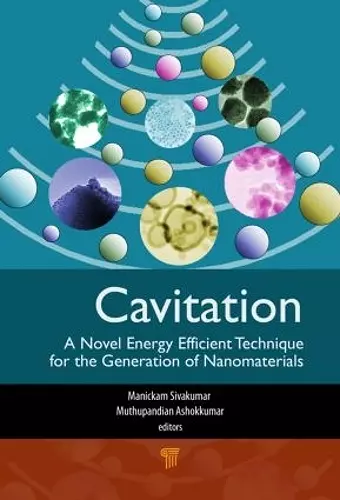Cavitation
A Novel Energy-Efficient Technique for the Generation of Nanomaterials
Sivakumar Manickam editor Muthupandian Ashokkumar editor
Format:Hardback
Publisher:Pan Stanford Publishing Pte Ltd
Published:5th Aug '14
Currently unavailable, and unfortunately no date known when it will be back

As nanomaterials and their end products occupy the pinnacle position of consumer markets, it becomes vital to analyze their generation processes. One of the green chemistry principles underlines the need for unusual energy sources to generate them. Utilizing the extreme energy from the collapse of cavitation bubbles, generated by either ultrasound or hydrodynamic forces, for the generation of nanomaterials is a merit to consider in this "Green Chemical Processing Era."
A wide range of nanomaterials have been developed in the past decade using cavitation or coupling cavitation with other techniques such as microwave, photochemistry, and electrochemistry, resulting in nanomaterials with unique morphologies, reduced size, narrow size distribution, and innumerous advantages. While a few currently available books deal with the fundamental aspects of cavitation and sonochemistry, this book is devoted specifically to the technologically important nanomaterials obtained by cavitation.
"This book is about new ways of making nanomaterials using cavitation effects. The new book offers a multi-author perspective on new developments and research directions in this field. Topics covered here are really new and innovative, and hence will really inspire scientists and students."
Prof. Mahito Atobe, Yokohama National University, Japan
"This book summarizes the most recent achievements in the sonochemical synthesis of nanomaterials. Among a variety of approaches, the utilization of acoustic cavitation provides rapid and environmentally friendly route to access nanostructured materials with controlled properties. The combination of power ultrasound with other reagent-free techniques largely discussed in this book will undoubtedly attract readers’ attention."
Dr. Sergey Nikitenko, CNRS, ICSM, France
ISBN: 9789814411547
Dimensions: unknown
Weight: 774g
454 pages